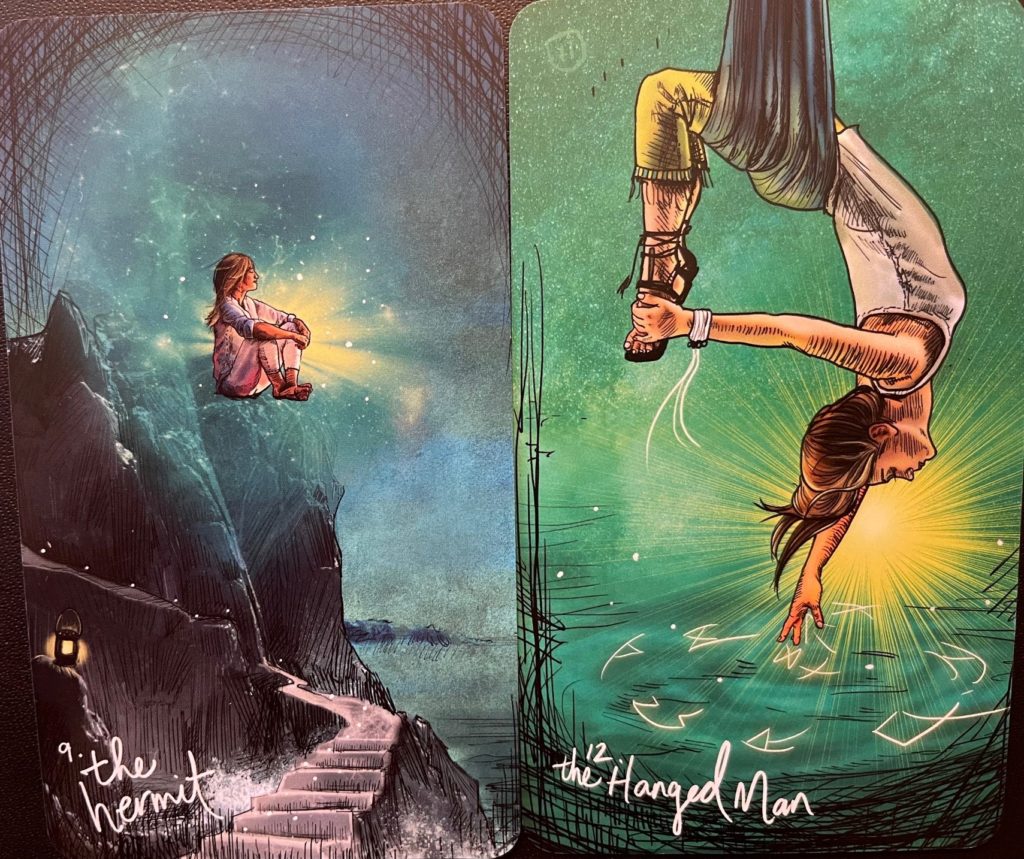
Last week I attended the memorial service for the mother of one of my best friends. I couldn’t make it to June’s funeral mass, but the impromptu speeches at the reception following it were a tribute to how much she cared for others—and how much others cared for her.
Two days later, I found out that a friend of mine, Tim, had died. I hadn’t seen him in years. His life had spun out of control which so many times leads to alienation from people who were once close.
I pulled these two cards this morning as my cards of the day. Together, the Hermit and the Hanged Man remind me to go within to find a new perspective.
We think of grief as an emotion that begins when life ends. But for both June and Tim, their loved ones started grieving long before their deaths. June suffered from dementia for years. Or perhaps I shouldn’t say she suffered; she was always cheerful. It was her family members who suffered. And as Tim became increasingly isolated, his family and friends suffered the loss of his full presence as well.
Grief is wily. It’s sneaky. It doesn’t always show up when it’s expected. It can hide behind anger or guilt or even shame. It makes us forgetful and clumsy. Grief batters the immune system and can increase our blood pressure. It leaves us depleted and yet unable to sleep. It can hit us on every level: emotional, of course, but also physical and spiritual.
And we grieve all sorts of deaths. Break-ups. Moves. Job changes. Children moving out of the house. Chronic illness, alcohol or substance abuse that change a friend into someone we no longer recognize.
People who experience a loss probably get tired of others telling them to be gentle with themselves. But it’s true. We need to recognize that we’re grieving and that the anxiety or inability to concentrate, the loss of appetite or desire to do anything, are all signs that we’re mourning. We may cry. Or we might not.
Everyone grieves in their own way.
And in their own time.
The feelings of loss never go away, but they do eventually change into something less raw.
I feel it’s important for me to recognize my own feelings of fragility when someone I know experiences the death of a loved one. I try to take a step back and realign myself with my heart and my purpose. I remind myself that we’re all connected and that my friend’s loss is my loss. I hope I can extend sympathy, compassion, and empathy to them. But I also hope I can tap into what emotions it brings up in me and lead me to contemplation and a new perspective.
